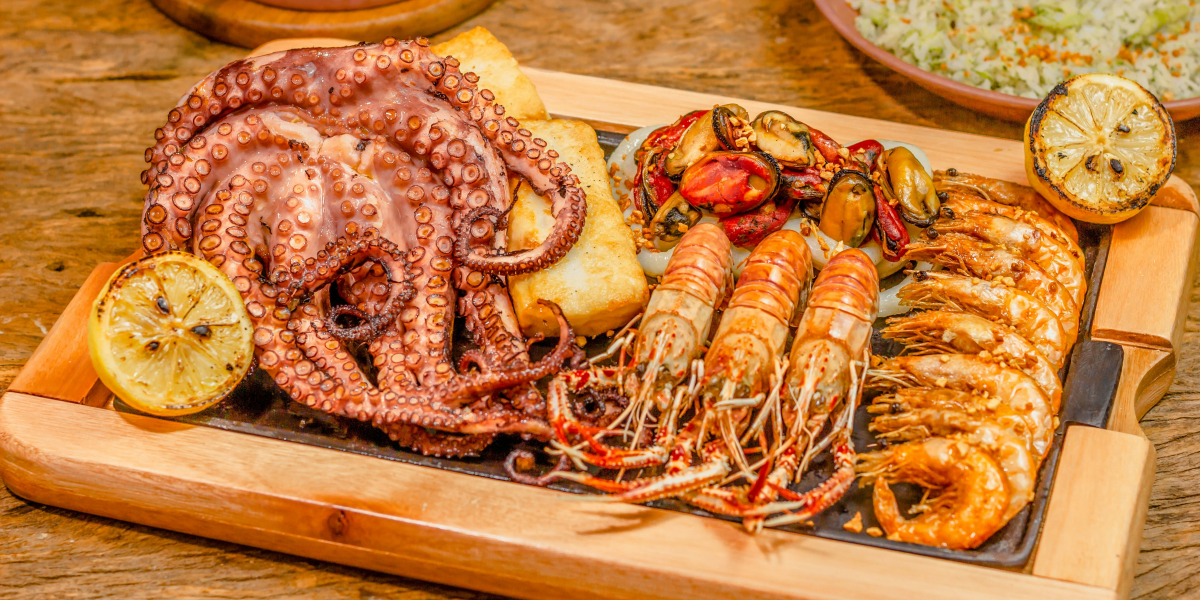By: Gabriel Rodriguez
In recent years, the food truck industry has witnessed a remarkable surge in popularity, transforming from a niche market into a vibrant and integral part of urban culinary landscapes. This rise can be attributed to a blend of factors, including the allure of diverse, high-quality food offerings, the convenience of mobile access, and a growing consumer interest in unique, locally sourced dining experiences. California-based seafood food truck Loco Fish Co. has built its brand around the understanding that sustainable seafood practices are crucial in today’s food industry.
With overfishing drastically impacting marine ecosystems, there’s an urgent need for the food industry, including food trucks, to commit to sustainability. This approach preserves marine biodiversity and ensures a stable seafood supply for future generations. Leaders at Loco Fish Co. dive into the world of sustainable seafood practices specifically tailored for food trucks.
Understanding Sustainable Seafood
Understanding sustainable seafood is critical to fostering a more environmentally responsible food industry, particularly for burgeoning sectors like food trucks. Sustainable seafood is defined as seafood that is harvested or farmed in a manner that maintains the long-term health and stability of that species, as well as the well-being of the ocean ecosystems.
“The principles of sustainable seafood revolve around ensuring that fishing and aquaculture practices do not deplete fish populations, harm other marine life, or damage the marine environment,” says the owner of Loco Fish Co.
Overfishing presents a dire threat to marine ecosystems. It occurs when fish are caught at a faster rate than they can reproduce, leading to a drastic reduction in those populations. This reduction affects the balance of the marine ecosystem and the livelihoods of communities reliant on fishing. Overfishing can lead to the collapse of fish stocks, which in turn disrupts the food chain, affecting species diversity and ecosystem resilience.
The Response to Sustainability Threats
Organizations like the World Wide Fund for Nature (WWF) established various certification programs to combat these issues and promote sustainable seafood practices. These programs, such as the Marine Stewardship Council (MSC) and the Aquaculture Stewardship Council (ASC), provide guidelines and standards for sustainable fishing and aquaculture. Products bearing these certifications are verified as having been sourced in a sustainable manner, giving consumers and businesses confidence in the products they choose.
“The incorporation of sustainable seafood into the offerings of food trucks presents several key benefits. It aligns food trucks with growing consumer demand for environmentally responsible dining options,” notes a leader at the Loco Fish Co.
As awareness of environmental issues increases, consumers are more inclined to patronize businesses that demonstrate a commitment to sustainability, which helps attract a customer base that values eco-friendly practices and fosters a positive brand image. Using sustainable seafood can ensure a stable supply in the long term. Food trucks contribute to the ongoing availability of seafood resources by supporting sustainable fisheries and aquaculture practices.
Additional Benefits of Sustainable Seafood
There is an educational benefit to choosing sustainable seafood. Food trucks, often seen as trendsetters in the culinary world, have the unique opportunity to educate customers about the importance of sustainability in seafood.
“Through their menus and interactions, they can raise awareness about the impact of overfishing and the benefits of sustainable practices, thereby fostering a more informed and responsible consumer base,” says a Loco Fish Co. manager.
Embracing sustainable seafood can lead to innovation in menu development. The necessity of sourcing sustainable options encourages chefs and food truck operators to explore a wider variety of seafood species, including underutilized and lesser-known varieties; this not only aids in reducing pressure on overfished species but also enables the creation of unique and diverse culinary offerings, setting the food truck apart in a competitive market.
Challenges and Solutions
Adopting sustainable seafood practices in the dynamic environment of food trucks comes with its own set of challenges. One significant obstacle is the higher cost of sustainably sourced seafood compared to conventional options. For food trucks operating with thin margins, this can be a substantial hurdle. Additionally, the limited storage and preparation space in a food truck can make handling and preserving high-quality, sustainable seafood a logistical challenge. The limited availability and accessibility of sustainable seafood continue to pose challenges, as not all regions have equal access to certified suppliers.
Despite these challenges, innovative solutions are emerging to help food trucks navigate these waters. One approach is building relationships with local suppliers and fisheries that practice sustainable fishing. These positive networking endeavors ensure a fresh and sustainable supply of seafood while supporting the local economy. Another strategy is to focus on lesser-known or underutilized fish species that are more abundant and sustainably managed.
Technology also plays a crucial role in this transition. Many food trucks are now utilizing apps and digital platforms to trace the sustainability of their seafood sources. These tools provide transparency and ensure that the seafood served meets sustainability standards. Embracing a flexible menu model allows food trucks to adapt their offerings based on the availability of sustainable seafood, reducing the risk of over-reliance on a single source.
Maintaining Sustainable Seafood Practices
The shift towards sustainable seafood practices in the food truck industry is a necessary evolution for our oceans’ health and global food systems’ future. Such practices ensure the longevity of marine life, support the balance of ecosystems, and secure a continuous supply of seafood for generations to come. Food trucks, as innovative and agile entities in the culinary world, are uniquely positioned to champion this cause.
As consumer awareness and demand for responsible dining options continue to grow, food trucks that prioritize sustainability will continue to contribute to a healthier planet and enjoy increased patronage and loyalty. The future of sustainable seafood in the food truck industry is bright, paving the way for a more sustainable, informed, and conscientious approach to how we eat and how we treat our oceans.
Published by: Khy Talara












